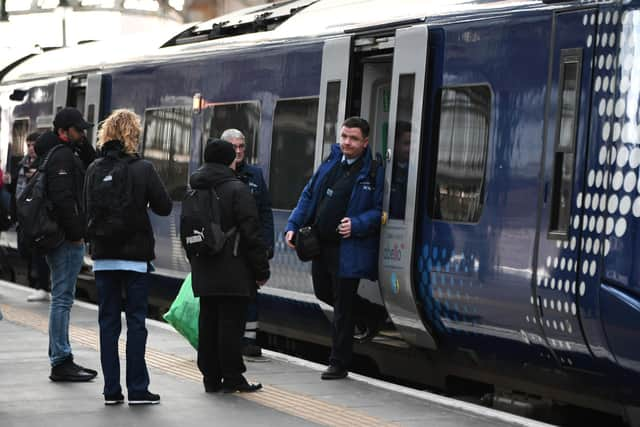New Year rail fares hike no more with potentially dramatic changes to come
The ScotRail increase has been postponed for at least three months until March at the earliest, First Minister Nicola Sturgeon announced in September. Fares on cross-Border operators like LNER and Avanti West Coast will not rise until March 5 and be capped at 5.9 per cent – less than half the current inflation rate – the UK Government said before Christmas.
But the changes in how much we pay to travel by train – and bus – may go far further than that. South of the Border, a £2 limit on most bus fares is due to be introduced next week and last until March, while the Scottish Government could also cut ticket prices as part of its Fair Fares review, which was launched as part of the SNP’s power-sharing agreement with the Scottish Greens in 2021.
Advertisement
Hide AdAdvertisement
Hide AdPre-dating the cost of living crisis, the parties agreed 16 months ago to “ensure a sustainable and integrated approach to public transport fares”, which continued to rise while the cost of car travel fell.


The results of the review have still to be revealed but we do know one major change, that peak time ScotRail fares are to be suspended in a six-month trial to be launched at some point during the 2023-24 financial year from April, which could be extended.
That move alone, announced by John Swinney in the Scottish Budget in December, could be transformational, making it affordable for more commuters to switch to rail. It’s a genius idea, helping to boost revenue by filling the once overcrowded weekday trains that are now emptier than those running on Saturdays – ScotRail’s busiest day, post-pandemic.
Expect more on bus fares too for those aged between 22 and 60 who still have to pay for their travel.
However, cutting the cost of using public transport is about far more than just making it more competitive with the car – it’s an imperative when ministers have not only declared a climate emergency to cut emissions but set the extraordinarily ambitious target of reducing road traffic by 20 per cent by 2030.
Comments
Want to join the conversation? Please or to comment on this article.